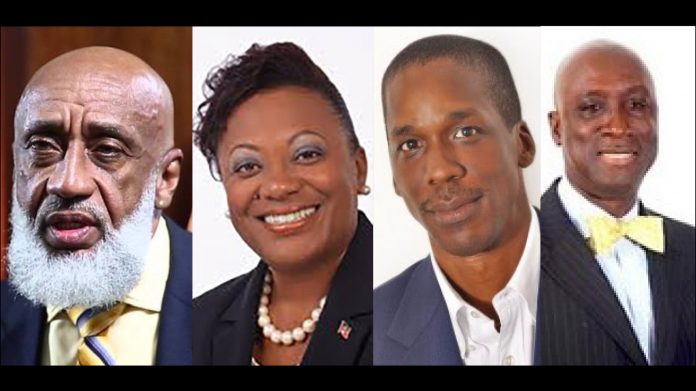
By Makeida Antonio
The push by governments in some Caribbean states to move to the Caribbean Court of Justice (CCJ) by way of referendum has been unsuccessful, as seen in Antigua and Barbuda in 2018.
Yesterday, just after the third anniversary of the November 6 vote, a group of experts weighed in on the lessons learned on Observer radio’s Big Issues show.
Attorney Justin Simon QC, a former Attorney General and Legal Affairs Minister, believes that it is time political parties put aside their differences when it comes to addressing national issues.
He said he wholeheartedly agrees with the stance that having the CCJ as the country’s final appellate court is needed to secure full independence of the judiciary in Antigua and Barbuda.
Senator Shawn Nicholas, of the United Progressive Party (UPP), addressed claims that the UPP played a role in why the referendum did not result in removing London’s Privy Council as the final court of appeal.
Senator Nicholas defended the party, reporting that discussions were had at all levels of the party and that it was not just a personal decision that its leader Harold Lovell took.
She further illustrated why she thinks it is unfair that people blame the UPP for the outcome of the vote. Nicholas highlighted that the overall voter turnout was 33.3 percent, claiming that demonstrated that supporters of the ruling Antigua and Barbuda Labour Party (ABLP) were disinterested in the proposed CCJ move.
Senator Nicholas agreed with the position from some that political parties should not have been at the forefront of the referendum and suggested that civil society and other stakeholders should lead the change.
Stafford Byers, an attorney originally from Antigua and Barbuda, is currently in New York where he works and resides. He’s a member of the activist group, Antiguans and Barbudans for Constitutional Reform and Education.
He shared his view on whether or not referendums are suitable for making these types of national decisions.
“We need to reflect on what has happened and it hasn’t worked well in the Caribbean region,” Byers said.
He proposed that Caribbean countries develop a culture of political consensus, where various political parties and organisations can have their position on issues not only be heard but taken into consideration as well.
Byers critiqued the current political atmosphere in the region, calling it “brute force”.
“Once you have votes on something you just do it, and that doesn’t work,” he said.
While some fragments of the electorate felt that the referendum process was being rushed, Byers said that this stance was propagated by the UPP to get back at Prime Minister Gaston Browne amid clashing political views.
Byers chided the politizisation of the CCJ referendum saying, “Patriotism is better than politics.”
Peter Wickham, director of the polling and research firm Caribbean Development Research Services and a political commentator, said he could not understand why the opposition party would tell its supporters to “vote with your conscience”.
Wickham expressed his disappointment in what he said was a lack of leadership by the party, claiming that the UPP helped overshadow the discussion of why the country should consider moving to the CCJ.
He argued that this political practice is disingenuous, and that using issues such as mistrust in the administration in delivering back pay and an alleged history of corruption, for example, helped score cheap political points.
He warned that this behaviour from political parties is counterproductive in providing guidance on national issues such as decolonisation and development.
The panelists agreed that the face of future referendums should not be politicians, but rather professionals and civic groups such as the Antigua and Barbuda Bar Association.
They also said that in order for Antiguans and Barbudans to be interested enough in matters of national importance, politicians must set an example by demonstrating political maturity.
